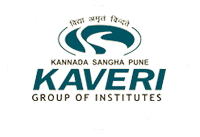Date:- 10th February 2025, Monday
Who attended- Katta was facilitated by Ashwini Sarpotdar and Simran Kanhere.
17 students attended.
The Katta: An Informal Session on ‘Purpose of Life and Building Habits’
This session was held at Bhavartha Library, Kothrud—a serene setting that students felt positively influenced their thought process.
The discussion began with a recap of the previous Katta on ‘Consistency,’ followed by students sharing their experiences with goal-setting and vision-building, which they had explored during the residential camp.
By revisiting their experiences from these sessions at the camp, students connected past learning to their current thought process.
Key topics discussed included:
- Purpose of Life and how it differs from goals.
- Introduction to Viktor Frankl’s ‘Man’s Search for Meaning’ and the concept of logotherapy. This helped students understand how meaning can shape resilience, especially in adversity.
- The evolving nature of life goals—can a life’s purpose progress and expand, or does it remain constant? (Example: Navneet Publications). how life’s purpose can evolve over time, making the concept more relatable.
- Debate on purpose—is it created or discovered? The debate encouraged students to think critically, articulate their perspectives, and listen to different viewpoints.
- Interplay between habits and purpose—brainstorming around the statements “Habits define purpose” and “Purpose shapes habits”.
- Trigger discussions—Is happiness the ultimate purpose of life? Does suffering play a role in discovering one’s purpose? Discussion pushed students to examine their beliefs rather than just passively accept ideas.
- The role of habits in achieving goals—exploring habit formation.
- ‘7 Habits of Highly Effective People’ by Stephen Covey—introducing the 3 Rings Model (Desire, Knowledge, Skill).
- ‘Atomic Habits’ by James Clear—concepts of the Habit Line, Deconstructing habits, and Outcome-Based vs. Identity-Based Habits.
- ‘The Compound Effect’ by Darren Hardy—featuring the anecdote of a man riding a horse.
Referencing the above books provided practical frameworks for students to apply in their daily lives.
The session concluded with a reflective question: Have you developed a habit (after the goal-setting and vision-building sessions at the camp) that makes you feel closer to your life’s purpose? This encouraged students to introspect and analyze their progress.
Overall, it was an engaging and insightful discussion, allowing students to express their thoughts on multiple dimensions of life’s purpose. Many students expressed interest in continuing the conversation in future sessions.
Holding the session at Bhavartha Library, a peaceful and intellectually stimulating environment, helped students focus and engage more deeply.
The informal nature of the Katta allowed for open dialogue, making students comfortable expressing their ideas.
Peer interactions and shared insights strengthened learning through collaborative knowledge-building.

